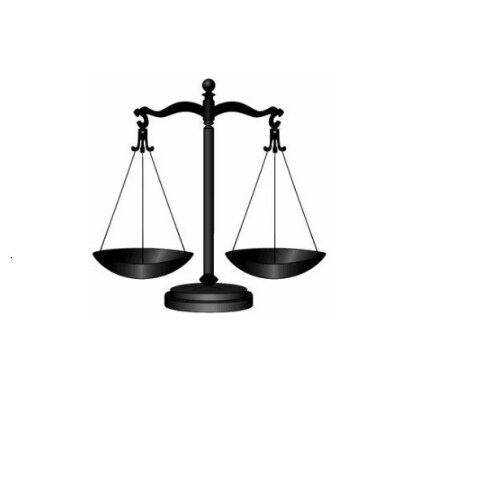Best Juvenile Law Lawyers in Nigeria
Share your needs with us, get contacted by law firms.
Free. Takes 2 min.
Or refine your search by selecting a city:
List of the best lawyers in Nigeria
About Juvenile Law in Nigeria
Juvenile law in Nigeria focuses on legal provisions and protections afforded to individuals who are not yet considered adults, typically those under the age of 18. This branch of law encompasses various issues such as juvenile delinquency, child custody, and child welfare. The primary aim is to rehabilitate rather than punish young offenders, acknowledging their capacity for change and development. The Child Rights Act, enacted in 2003, serves as the main legislative framework regulating juvenile justice, guiding policy and ensuring the protection of children's rights across the country.
Why You May Need a Lawyer
Engaging a lawyer knowledgeable in juvenile law can be crucial in numerous situations, including:
- When a minor is accused of committing a crime and needs representation in juvenile court.
- During disputes over child custody or guardianship, where legal expertise is necessary to safeguard the child's best interest.
- In cases of child abuse or neglect, where legal action may be required for protection and redress.
- When seeking clarification and enforcement of rights under the Child Rights Act.
- Assistance in navigating legal processes related to child adoption, fostering, or guardianship.
Local Laws Overview
Several key aspects define the landscape of juvenile law in Nigeria:
- The Child Rights Act stipulates rights and protections for children, aiming for uniformity across Nigeria, although its implementation varies by state.
- Juvenile courts are specially designated to handle cases involving minors, focusing on rehabilitation rather than punishment.
- The Nigerian legal system includes provisions against child labor, child trafficking, and other forms of exploitation.
- Alternative care systems, like adoption and fostering, are regulated to ensure the welfare of children is prioritized.
- Juvenile justice procedures encourage privacy to protect minors' identities and support their rehabilitation.
Frequently Asked Questions
What is the age classification for juvenile offenders in Nigeria?
In Nigeria, individuals below 18 years are categorized as juveniles for legal purposes and are handled by the juvenile justice system.
How does the juvenile court differ from adult courts?
Juvenile courts focus on rehabilitation and the welfare of the child, unlike adult courts, which primarily emphasize punishment for offenses.
Are juvenile offenses included in a criminal record?
Juvenile offenses typically do not appear in an adult criminal record, focusing instead on the rehabilitation of the minor rather than punishment.
Can a child be tried as an adult in Nigeria?
In Nigeria, the law prioritizes trying minors within the juvenile system unless an extraordinary circumstance justifies otherwise. Such cases, however, are rare and require special considerations.
What legal rights do children have under Nigerian law?
The Child Rights Act ensures various rights for children, including the right to education, health care, protection from harm, and the right to be heard in matters affecting their welfare.
What should I do if my child is detained by the police?
Engage a lawyer immediately to ensure your child's rights are protected. You have the right to be informed of the charges and to visit your child.
Who can adopt a child under Nigerian law?
Adoption is permitted for adults of sound mind who can provide a suitable environment for the child. The process involves legal vetting and consideration of the biological parents' rights.
How can juveniles seek redress if their rights are violated?
Juveniles or their guardians can seek redress through petitions to juvenile courts or relevant child rights commissions. Legal advice is recommended in these circumstances.
Does Nigeria recognize international child protection laws?
Yes, Nigeria is a signatory to several international conventions on children's rights, such as the United Nations Convention on the Rights of the Child, which influences domestic laws.
Is there legal aid available for juvenile cases?
The Legal Aid Council provides services for those unable to afford legal representation, ensuring access to justice for indigent families involved in juvenile matters.
Additional Resources
Consider reaching out to the following resources for further assistance:
- Ministry of Women Affairs and Social Development: A governmental body supporting child welfare.
- Legal Aid Council of Nigeria: Provides legal assistance to those unable to afford it.
- UNICEF Nigeria: Offers guidance on child rights and protection.
- Child Rights Information Network (CRIN): Advocacy and support for child rights in Nigeria.
Next Steps
If you require legal assistance in juvenile law, consider taking the following steps:
- Identify the specific legal issue concerning your situation in juvenile law.
- Reach out to a qualified legal practitioner specializing in juvenile law. The Nigerian Bar Association can provide referrals.
- Gather all relevant documentation and information related to your case to present to your lawyer.
- Contact organizations and legal resources like the Legal Aid Council for guidance and support.
- Ensure ongoing communication and follow-ups with your legal representative to stay informed about your case's progress.
Lawzana helps you find the best lawyers and law firms in Nigeria through a curated and pre-screened list of qualified legal professionals. Our platform offers rankings and detailed profiles of attorneys and law firms, allowing you to compare based on practice areas, including Juvenile Law, experience, and client feedback.
Each profile includes a description of the firm's areas of practice, client reviews, team members and partners, year of establishment, spoken languages, office locations, contact information, social media presence, and any published articles or resources. Most firms on our platform speak English and are experienced in both local and international legal matters.
Get a quote from top-rated law firms in Nigeria — quickly, securely, and without unnecessary hassle.
Disclaimer:
The information provided on this page is for general informational purposes only and does not constitute legal advice. While we strive to ensure the accuracy and relevance of the content, legal information may change over time, and interpretations of the law can vary. You should always consult with a qualified legal professional for advice specific to your situation.
We disclaim all liability for actions taken or not taken based on the content of this page. If you believe any information is incorrect or outdated, please contact us, and we will review and update it where appropriate.
Browse juvenile law law firms by city in Nigeria
Refine your search by selecting a city.
















